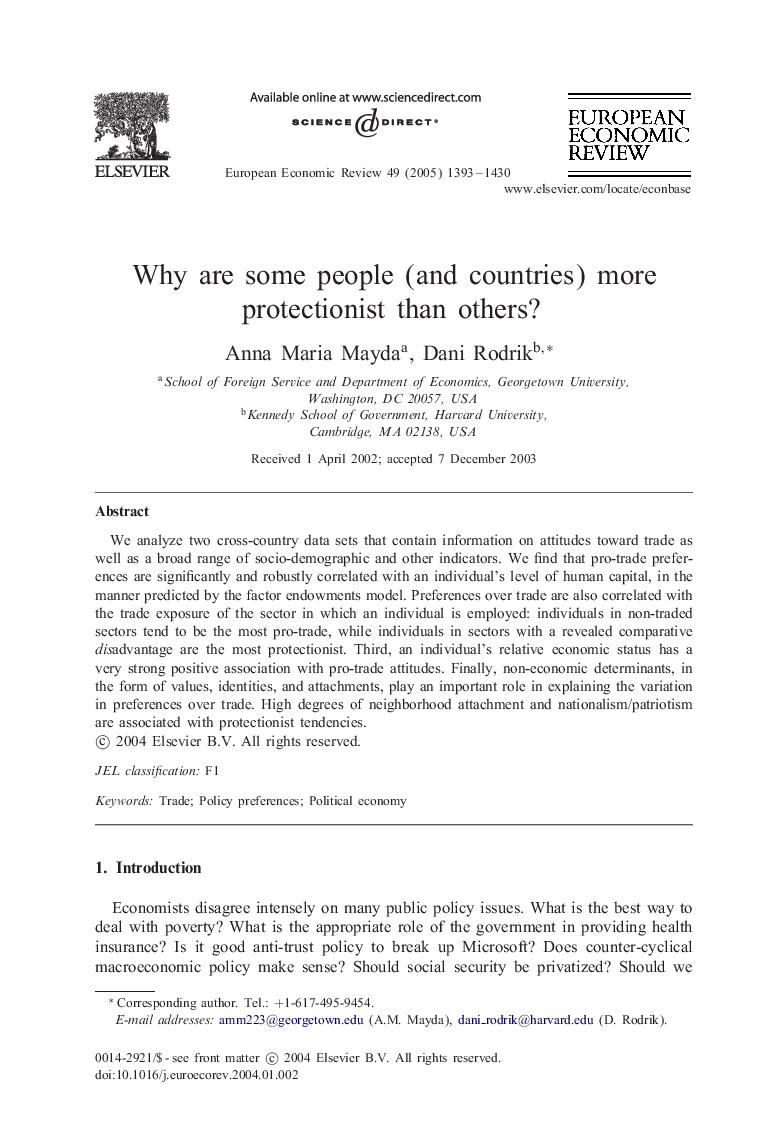| Article ID | Journal | Published Year | Pages | File Type |
|---|---|---|---|---|
| 9551093 | European Economic Review | 2005 | 38 Pages |
Abstract
We analyze two cross-country data sets that contain information on attitudes toward trade as well as a broad range of socio-demographic and other indicators. We find that pro-trade preferences are significantly and robustly correlated with an individual's level of human capital, in the manner predicted by the factor endowments model. Preferences over trade are also correlated with the trade exposure of the sector in which an individual is employed: individuals in non-traded sectors tend to be the most pro-trade, while individuals in sectors with a revealed comparative disadvantage are the most protectionist. Third, an individual's relative economic status has a very strong positive association with pro-trade attitudes. Finally, non-economic determinants, in the form of values, identities, and attachments, play an important role in explaining the variation in preferences over trade. High degrees of neighborhood attachment and nationalism/patriotism are associated with protectionist tendencies.
Related Topics
Social Sciences and Humanities
Economics, Econometrics and Finance
Economics and Econometrics
Authors
Anna Maria Mayda, Dani Rodrik,
